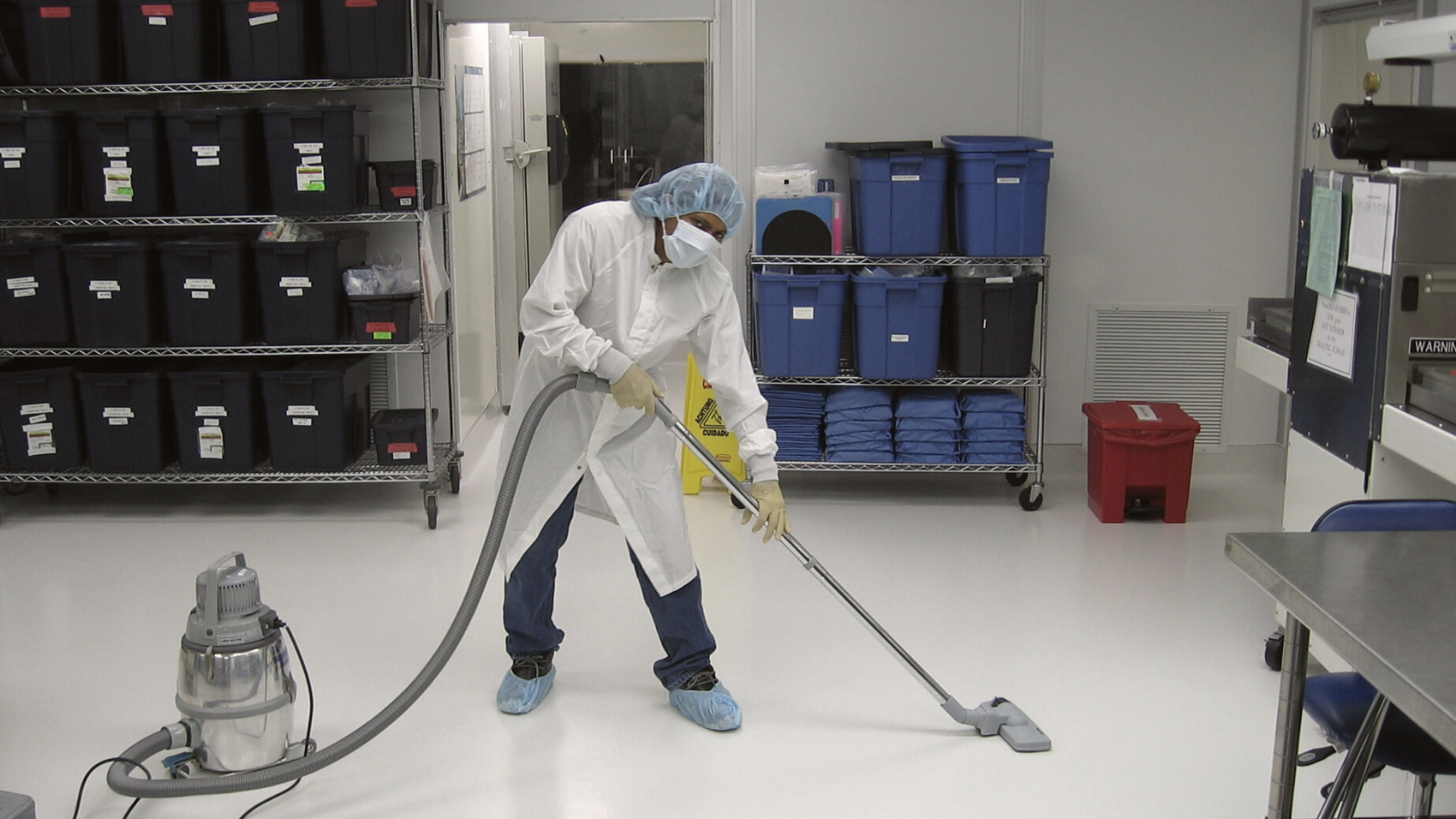From the tech sector and biopharmaceuticals to data centers and R&D applications, many industries today require cleanrooms to carry out their operations. Periodic cleanroom cleanings are essential in maintaining low particle concentration levels, but maintenance in between cleanings is also a must. Use this guide to find the products and services you need in between your cleanroom cleanings, so that your operations can continue without disruption.
What Should You Expect From Your Cleanroom Cleanings?
The wide number of cleanroom applications means that different cleaning procedures are needed for each unique environment. Some of the most common cleanroom cleaning methods include:
- Hydrogen peroxide fogging
- Microbial environmental testing
- Micro-cleaning
- Critical environment sterilization
- Contamination control
- HEPA filter vacuuming
- Disinfectant sterilization
- Particle count control
- Filter changes
- Airflow analysis
- And much more
Because there are so many industries that utilize cleanrooms, different standards and regulations also exist. Because of that, it's important to find a cleanroom service that complies with the regulations specific to your industry.
What are the Benefits of Doing Your own Cleaning in Between Cleanroom Cleanings?
Cleanroom cleanings often take place at regular intervals, but that doesn't mean that maintenance isn't required in the meantime. Having your employees handle basic cleanroom procedures is an essential part of keeping your facility in working condition, and doing so carries several benefits with it. Some of them include:
- Controlled particle count. In some data center and biopharmaceutical applications, dust particles can be very detrimental. Vacuuming and washing floors, windows, and walls in between cleanings can help keep particle levels within required concentrations.
- Airflow maintenance. If vents or filters become clogged, airflow can be impacted. Maintenance in between cleanings ensures that vents, ducts, and filters remain unobstructed, keeping airspeed at desired levels — and can affect cooling as well.
- Surface repair. Panels, tiles, and mats can degrade over time, and can allow particles to collect on their surfaces when they do. Maintenance in between cleanroom cleaning enables your staff to see and respond to degraded surfaces before your cleaning provider detects them, stopping damage before it gets worse.
Cleaning your facility in between your provider's deep cleans can keep it in suitable condition, and will help detect needed maintenance before emergencies occur — but a proper plan is essential. A poorly executed cleaning regimen can do more harm than good, so a detailed cleanroom cleaning procedure must be developed and followed each time any employee comes in contact with the space.
Your cleaning provider should be able to help you create a cleanroom protocol and should also be able to schedule services according to when they work best for you.
What Products and Services Should You Use?
Once you have a plan in place, your employees must be equipped with the products they need for cleaning your space. The exact cleaning products and services needed for your facility will vary based on the industry, but a few major ones are:
- Disinfectants
- Sterilizers
- Mops
- Brooms
- Gloves
- Coveralls
- Personal Protective Equipment (PPE)
With these tools in place, your staff will be furnished to provide basic cleanroom maintenance in between your cleanroom cleaning — as long as they follow the proper protocol.
Pegasus: Your Cleanroom Cleaning Provider
At Pegasus Building Services, we not only provide the cleanroom services needed for many sectors, but we help create cleanroom cleaning process guides for your staff. That means we can not only perform your cleanroom cleanings at the interval your facility requires with the processes it needs, but it can be kept in proper condition in the meantime. Contact us today, and develop a cleanroom regiment that meets industry regulations at every phase of the cleaning cycle.







